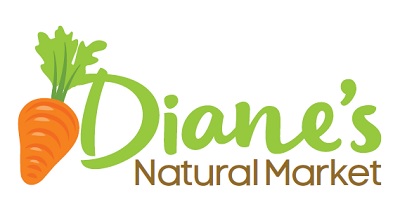Hormone balance in men encompasses far more than simply prostate health and sexual function.
Reproductive hormones interplay with many aspects of men’s health.
This includes those associated with “masculinity" like:
- drive and stamina
- courage
- body hair
...and others that are concerns for all genders, including:
- bone health
- insulin sensitivity
- blood sugar metabolism
- muscle strength
- overall energy and vitality
Hormones and Men's Health
Important Hormones
-
Testosterone
Testosterone is the primary masculine hormone, produced mainly in the testes. It is primarily associated with vitality and masculine traits, particularly in peak reproductive years.
-
Androstenedione
Androstenedione (“Andro”) is another key masculine hormone, also produced in the testes and associated with vitality and masculine traits.
-
Dihydrotestosterone
Dihydrotestosterone (DHT) is produced by the conversion of testosterone via the 5 alpha reductase enzymes.
While it does have some beneficial roles during sexual development and is technically more potent than testosterone, excessive amounts as men age are associated with balding and prostate problems.
Building and Converting Hormones
-
Aromatase & Estrogen
Some testosterone is converted into estrogen (estradiol) via the aromatase enzyme, which may increase with age and with increased abdominal fat.
If it happens too much, there will be a drop in testosterone and a reduction in the benefits of testosterone.
-
DHEA
DHEA is produced by the adrenals and can be converted into various hormones, including testosterone.
-
Cholesterol
Cholesterol is a base molecule of all these reproductive hormones; having adequate cholesterol is important.
Vital Nutrition for Men's Health
A varied and blood-sugar-balancing whole foods diet rich in plants, good fats, fiber, and a complete array of proteins is as helpful for men as it is for everyone.
Some extras to consider:
-
Lycopene
A red pigment in tomatoes, autumn olives, watermelon, red bell peppers, guava, pink grapefruit, and goji berries (more bioavailable if cooked or eaten with fat).
Lycopene helps protect the prostate from cancer and inflammation.
-
Zinc
A mineral found in abundance in oysters and other shellfish, pumpkin seeds (pepitas), red meat, nuts, and legumes. Zinc is also added to multivitamin/mineral supplements.
It plays an important role in prostate health, sperm production, immune health, mitochondrial energy, Type 2 diabetes prevention, and hormone balance.
Moderation is key—aim for at least 11 milligrams (mg) per day but no more than 40 mg on a regular basis.
-
Nutrient-Dense Herbs
Nettle leaf, moringa, and maca offer background support alongside diet.
Antioxidant, anti-inflammatory, circulation-enhancing herbs and foods support erectile function and the body’s ability to fight cancer and maintain a healthy prostate.
These include:
- garlic
- hawthorn
- cayenne
- green tea
- turmeric
- rosemary
- ginger
-
Topical Rosemary Oil
Topical rosemary oil performed well in a small human study for hair growth, rivaling the drug minoxidil (Rogaine) for male pattern baldness.
DHT-Inhibiting Remedies
These foods and herbs may support testosterone levels, prostate health, and sexual function by reducing the amount of testosterone that is converted to DHT.
-
Saw Palmetto Berries
By far the best-researched herb for men’s health, saw palmetto has been the subject of hundreds of studies on benign prostatic hyperplasia (BPH) and lower urinary tract symptoms (LUTS) including nighttime, frequent, and painful urination, and overactive bladder.
Some studies show comparable effects and fewer side effects versus medications, though others have less impressive results. It also seems to work better in formulas with other remedies mentioned in this article.
A typical dose is 320 mg of saw palmetto extract in a softgel per day.
Saw palmetto, which has a narrow habitat range and ripeness window, is threatened by overharvesting and climate change.
-
Pumpkin Seed
Not only do pumpkin seeds (or pepitas) provide zinc, but the oil and other constituents may have specific toning and alpha reductase–reducing effects that are beneficial for prostate and bladder tissue.
Studies confirm the oil’s ability to reduce symptoms of overactive bladder, frequent and nighttime urination, as well as reduced bladder tone, BPH, and LUTS.
In a 2021 study, pumpkin seed oil was helpful, though not quite as effective as the pharmaceutical tamsulosin, but had no side effects.
Another study comparing it to the drug prazosin found similar results after 6 months with a high degree of safety.
Studies have also shown good results with an oil-free pumpkin seed hydroethanolic extract (like a tincture), which reduced symptoms of BHP by 30 percent over 12 weeks.
Several studies also suggest benefits for hair growth.
The typical dose is 500 to 1,000 mg of pumpkin seed oil per day.
-
Nettle Root
In one study, nettle root extract reduced urinary symptoms associated with BPH for 91 percent of patients after six months of supplementation.
Typical doses of the root extract are 600 mg twice daily, or 300 mg three times daily.
Many studies note that the best results occur with long-term use, with full benefits presenting between 6 and 12 months of use.
-
Reishi Mushroom
Reishi mushroom may also offer alpha reductase–inhibiting and BPH-easing properties, though the research is still new.
This mushroom is also associated with deep immune support, anti-cancer and antiinflammatory properties, and overall energy and vitality benefits.

